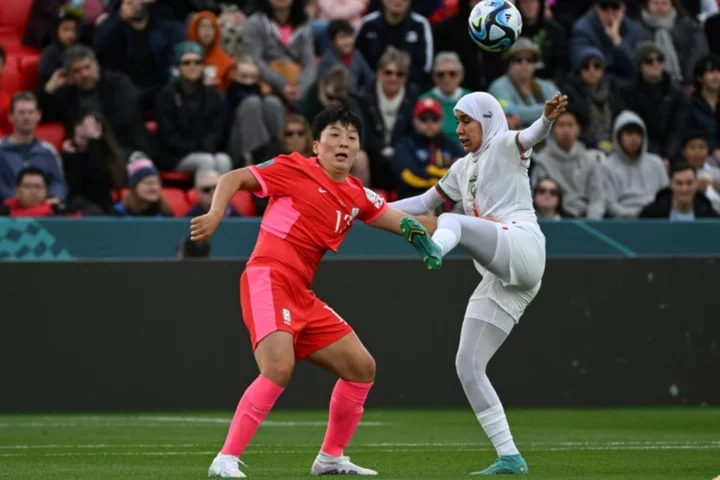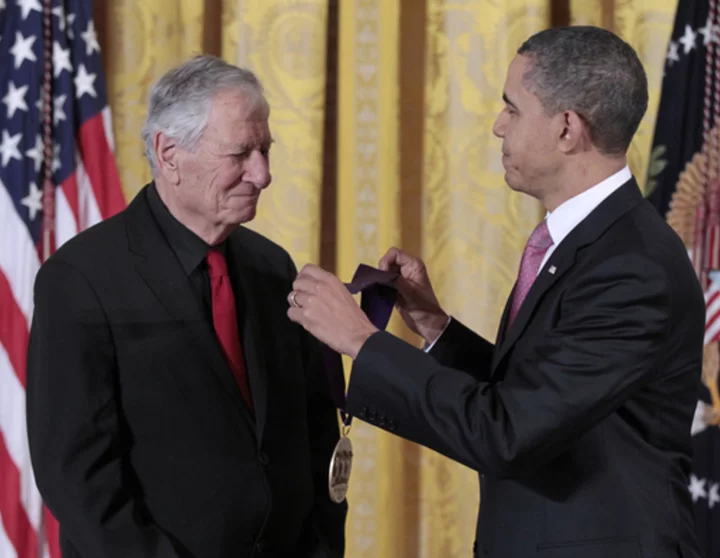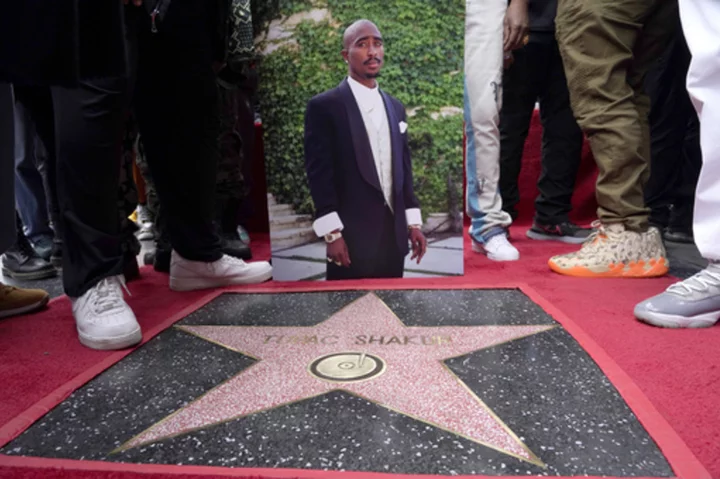
Who stars in ‘Indiana Jones and the Dial of Destiny'? Full cast list of the action-adventure movie
'Indiana Jones and the Dial of Destiny' is the only film in the franchise which is not directed by Steven Spielberg but the cast is just as brilliant
2023-06-08 17:15

MLB Rumors: Max Scherzer takes big step toward improbable playoff return
The Texas Rangers find themselves in the heat of the postseason, and they might have caught a stroke of luck with the potential early return of Max Scherzer if they manage to advance to the ALCS by defeating the Baltimore Orioles.
2023-10-08 03:46

Houston QB Stroud's record streak of attempts without an interception to start a career ends
Houston rookie C
2023-10-16 02:53

Iceland volcano – live: Eruption could obliterate town as region faces ‘decades’ of instability
A volcanic eruption could destroy the Icelandic town of Grindavik or lead to extensive ash clouds, experts have warned. The country has been shaken by more than 800 small earthquakes, prompting fears that the tremors could disrupt the Fagradalsfjall volcano on the Reykjanes peninsula in the southwest of the country. Almost 4,000 people were evacuated from Grindavik over the weekend as authorities feared that molten rock would rise to the surface of the earth and potentially hit the coastal town and a geothermal power station. Ragga Agustsdottir, who lives close to Grindavik, said residents were fearful of what could happen if an eruption struck. “The scenario on the table now is that it will happen in or just north of the town of Grindavik. There’s no good option here,” she told The Independent. It comes as scientists warned Iceland’s south-western peninsula could face “decades” of volcanic instability following volcanic eruptions along the peninsula. “We expect to see volcanic eruptions along the peninsula, not just repeatedly in the same location. This instability could last decades,” the Icelandic Met Office’s Matthew Roberts told the BBC. Read More Iceland earthquakes: Are flights still running amid fears of volcano eruption? Is it safe to travel to Iceland? Your rights if you have a holiday booked Iceland earthquakes: Huge cracks appear on roads in volcano-threatened town Could an Icelandic volcano ground flights like in 2010?
2023-11-16 15:49

Morocco's Benzina makes history with hijab at Women's World Cup
Nouhaila Benzina became the first player to wear a hijab during a Women's World Cup game when she sported the Muslim headscarf in Morocco's match...
2023-07-30 13:50

WHO warns against bias, misinformation in using AI in healthcare
The World Health Organization called for caution on Tuesday in using artificial intelligence for public healthcare, saying data
2023-05-16 17:47

GMA's Robin Roberts has priceless reaction to Michael Strahan after he refuses to get up from her lap
Robin Roberts was completely taken aback by Michael Strahan’s on-air behavior
2023-09-30 10:55

India wins the toss and decides to bowl in the first one-day match against Australia
India won the toss and decided to field in the first one-day international against Australia just two weeks ahead of the Cricket World Cup
2023-09-22 16:17

Northern Ireland must expect ‘hiccups’ during transitional time – Ali McCann
Northern Ireland must accept there will be setbacks along the way as they nurture a new generation of players, according to midfielder Ali McCann. Michael O’Neill’s players left Windsor Park dejected on Monday night after Abat Aimbetov hit an 88th-minute breakaway goal to give Kazakhstan a 1-0 Euro 2024 qualifying victory that was greeted with boos by sections of the home support. Northern Ireland had far more of the ball and created more chances but were punished for their inability to take them as they fell to a third straight 1-0 defeat in Group H. It was another night where the long list of senior players missing through injury told, but the youngsters once again pressed into action largely impressed, with 19-year-old Shea Charles named player of the match. The 23-year-old McCann counted among the more experienced players available as he earned his 18th cap and, although this result might be enough to already put qualification for Euro 2024 out of reach, he said the squad should not get too downhearted. “Obviously the manner of the goal, it’s not ideal and the result is really disappointing obviously, but there are lots of positives, we always look at the positives,” the Preston midfielder said. “I thought we were the better side for the majority of the game, but we’ve got to be a bit more clinical and cut out mistakes at the other end. “There’s lots of transition and there’s still a few of the older lads who have loads of experience and that’s great for the group, and the quality of the younger lads coming through. “There are always going to be hiccups in the road, we’ve just got to take it. The signs are bright going forward and some of the lads you can see playing, it’s brilliant.” There are always going to be hiccups in the road, we've just got to take it Ali McCann McCann said the defeat was the biggest low of his still young international career. Northern Ireland must now regroup and hope some big players return in time for September’s fixtures, when they are away to Slovenia and Kazakhstan. “These types of losses at home are really hard to take, everyone is hurting in there,” McCann added. “It’s a case of not dwelling on it, come back in September, wipe it clean and go from there. “We’ve got two hard games away from home, but if we can pick up two good results then we’ll see where we are after that. “In the main we can’t be too down, things like this happen in football so really we’ve just got to forget about it and try to put it right next time.” After the match, O’Neill said qualifying would now be “extremely difficult”, having taken only three points from four games, but McCann is not writing off Northern Ireland’s chances yet. “I wouldn’t say it ends, there’s still plenty of games, we’ve got six left,” he said. “If we start September with two good results we’ll see how we are. “It’s an open group with teams taking points off each other. We’re going into September with two tough away games, we’ll go there trying to get three points in both games and then we’ll see where we are.” Read More Charity boss speaks out over ‘traumatic’ encounter with royal aide Ukraine war’s heaviest fight rages in east - follow live Final day of first Ashes Test under way after morning rain at Edgbaston French anti-corruption police raid HQ of Paris 2024 Olympic organising committee Community Shield kick-off brought forward by 90 minutes following fan complaints
2023-06-20 21:52

Houston's Jose Altuve hits 2-run homer to become 1st Astros player to hit for cycle since 2013
Jose Altuve hit a two-run home run over the Green Monster in the eighth inning to became just the ninth Houston tros player to hit for the cycle
2023-08-29 10:51

Analysis: Debt deal could boost unloved corners of U.S. stock market, though risks loom
By Laura Matthews and Chibuike Oguh Global investors are gaming out how a tentative deal to raise the
2023-05-29 05:45

Robert Brustein, theater critic and pioneer who founded stage programs for Yale and Harvard, dies
The theatrical world has lost a giant
2023-10-30 08:25
You Might Like...

Far-Right Leader Wilders Leads Dutch Poll on Eve of Election

Conservative media mogul Rupert Murdoch hands empire to son Lachlan

Banc of California to buy troubled PacWest Bancorp, which came close to failing earlier this year

'Jeopardy!' contestant Anji Nyquist reveals unconventional way of making it on game show: 'Made some flashcards'

'Too Hot to Handle' fans slam Isaac for pursuing Hannah after leading on Yasmine and Courtney: 'He’s literally a man boy'

Tupac Shakur receives Walk of Fame star honor in the same month as birthday

Here's why xQc doesn't pay his Twitch moderators: 'It could be weird'

X will allow political ads again and hire for safety and election teams ahead of 2024 elections
